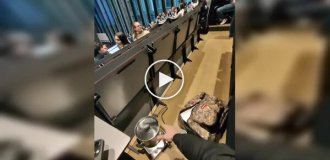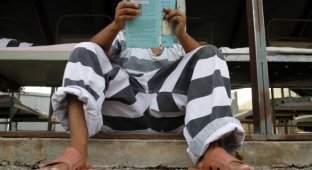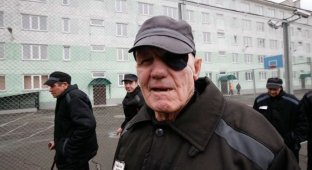The horrors of a Thai prison: what former prisoners say about life behind bars (8 photos)
The country is very pleasant and comfortable for tourism, but the conditions in correctional facilities there are sometimes simply hellish 
24-year-old Thai activist Rangsiman Rom spent a short time in the notorious Klong Prem Central Prison. The Thammasat University graduate was imprisoned twice. The first time was in June 2015, when he, along with 13 other activists, was detained for violating the ban on political meetings. The second time was in June 2016, when he was arrested for campaigning against the referendum. In both cases, he spent 12 days in jail awaiting trial before being released.
Another case involved 28-year-old Prontip Mankong, who was released under a favorable royal pardon a few months before her two-year sentence was due to expire. It was concluded after a theatrical performance in 2013 that was considered insulting to the monarchy. She was arrested and sentenced in 2014, and released in 2016
Both agreed to talk more about a typical day in a Thai prison.
A typical day behind bars 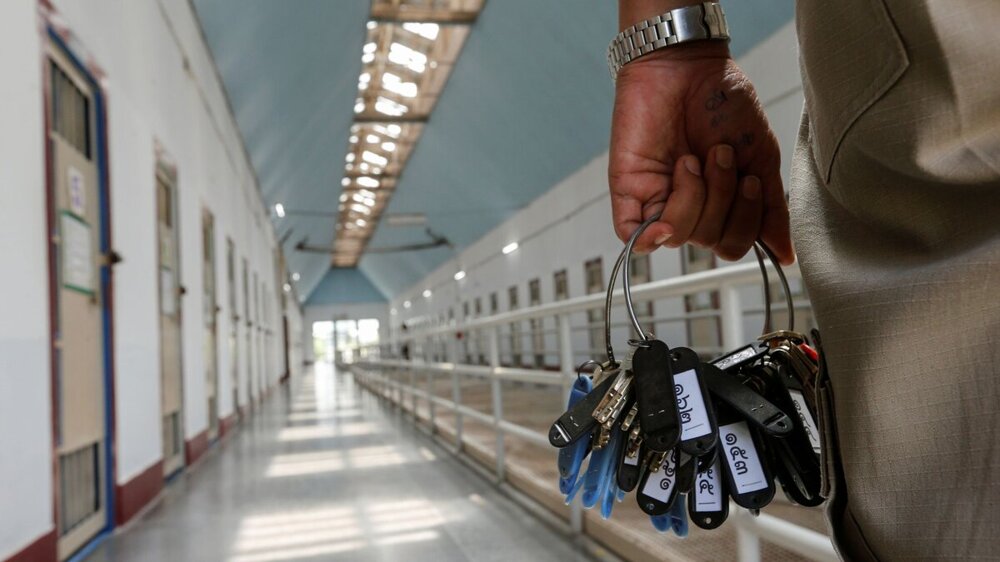
Men get up at 6 am. They carefully fold their thin blankets on which they sleep instead of mattresses. The guards begin counting the prisoners, forcing them to name their numbers. They then take a group shower, using bowls to draw water from a large bathtub.
Breakfast is served at 7 a.m., lunch at noon, and dinner late in the evening when work is finished. Usually the meal consists of low-quality rice and some additive to it. Rangsiman said that the food is so terrible that only those prisoners who have no money or relatives eat it. Others prefer food sent from their families or may cook their own using rice, noodles, canned goods and seasonings, in addition to free morning coffee. 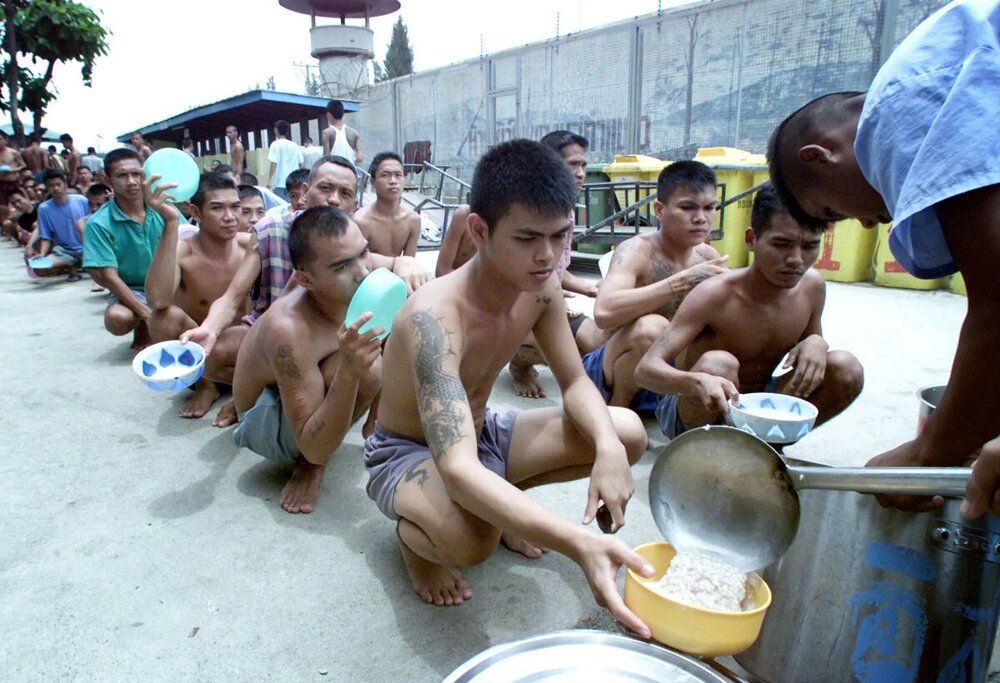
At 8 am, all prisoners gather to sing the Thai national anthem. Then everyone is assigned to a job. Folding paper bags, making shoes, carpentry are some examples of paid work. Mandatory unpaid prison work includes cleaning, cooking and assisting guards.
Even Rangsiman, who was not convicted but was awaiting trial, had to take on a relatively small commitment to work in the library. Heavy work, such as construction and renovation work, is sometimes carried out even outside the prison area. Hard work is a way for long-term incarcerated criminals to atone for their crimes. Some may be able to reduce their sentence or even receive a pardon. 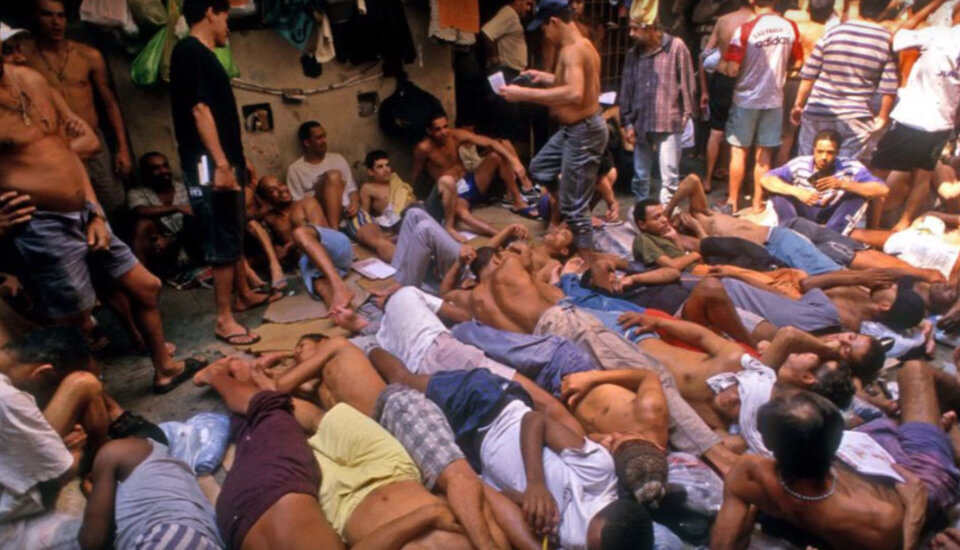
Every day except Sunday, prisoners have the right to see visitors. To do this, you will have to wait up to an hour, go through a security screening process, and then you can communicate with relatives through the bars for 20 minutes. Visitors are not allowed to bring anything for prisoners from outside, but they can buy supplies from the prison store.
Prisoners who have completed their work are allowed to shower from 15:00 onwards. Later, a bell rings calling the prisoners back to their cells. Everyone must be in their cells by 18:00. They can read books, chat or watch TV. At 21:00 the televisions are turned off, the prisoners say Buddhist prayers and go to bed for the night.
"House" system 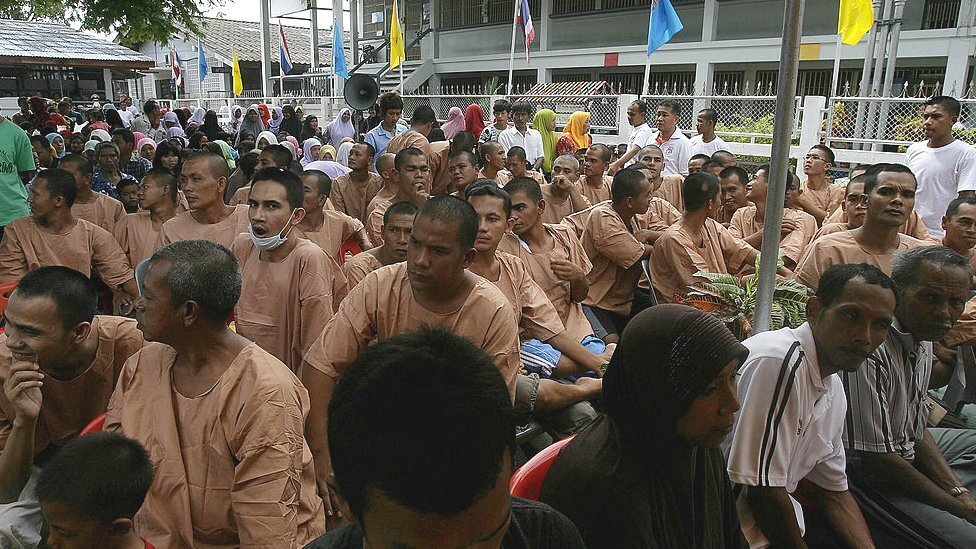
Many prisoners are grouped by hometown. "Houses" is a tradition in which prisoners from the same province or community stay together and share gifts from their visitors. Once items are obtained, be it food or other necessities for life, they should be shared with other members of the group. The prisoners in each house take care of each other. If you quarrel with one, it means that the quarrel concerns all members of the house.
"It's a mafia system that the prison is trying to destroy. It gives the prisoners some power," says Rangsiman. "But it also helps long-term prisoners and those with poorer family members. They don't have visitors, which means they only get what the prison provides. The community system allows them to get better food and goods."
"Houses" rarely conflict with each other, as this leads to their punishment.
Women in Thai prisons 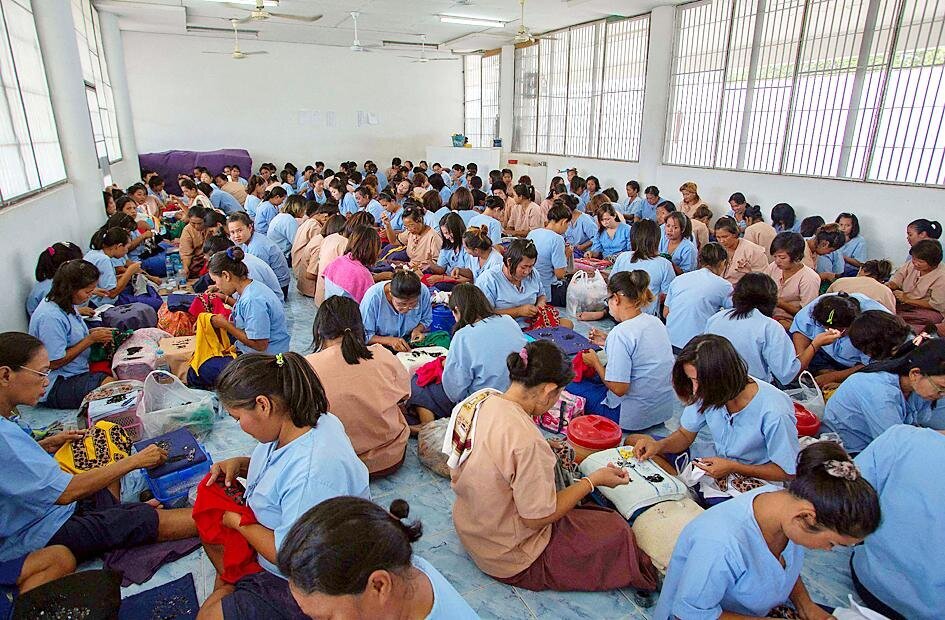
Life isn't much different for women. The dormitories accommodate two or three times as many prisoners as they should. Women wake up, wash, eat and line up to sing the national anthem. Jobs for women are usually "traditionally feminine" - they do sewing, work as hairdressers and give Thai massage.
However, as in men's prisons, poor management means prisoners do not always receive essential supplies, including feminine hygiene products.
Prontip says prisoners receive free sanitary pads and basic toiletries in large quantities twice a year, but guards occasionally search their small lockers and take away "extras." You cannot keep more than two of each item, as they can be used as prison currency.
Also, poor waste management results in many used sanitary pads clogging toilets and drains. To make matters worse, thousands of prisoners are only allowed to use the toilets at certain times.
Nobody communicates with farangs 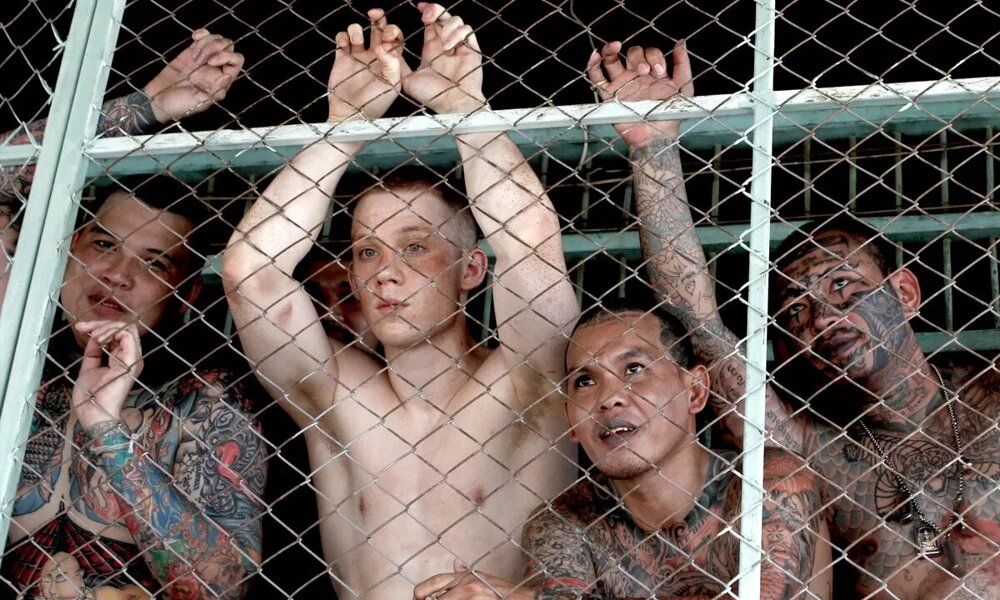
Both Rangsiman and Prontip say the main problem for foreign prisoners is the language barrier. The guards don't speak English or other languages and they don't care. As a result, foreigners are unable to access certain necessary items and require assistance from other prisoners to write complaints, request medical treatment, and so on.
"They are not discriminated against. It's just that no one can talk to them, so they have to stick together," Rangsiman said.
Another problem is their physical parameters. Crowded cells do not have enough space to lie down comfortably. Westerners, being taller than most Thais, have difficulty falling asleep and must be especially careful not to let their limbs stray into anyone's territory.
Surprisingly, Thailand's consular relations with other countries have an impact on imprisoned foreigners. Prontip said Chinese prisoners, for example, receive Chinese newspapers as part of an agreement with their embassy and are usually released on embassy bail. Christian prisoners, many of them African, are often visited by missionaries.
Conclusion 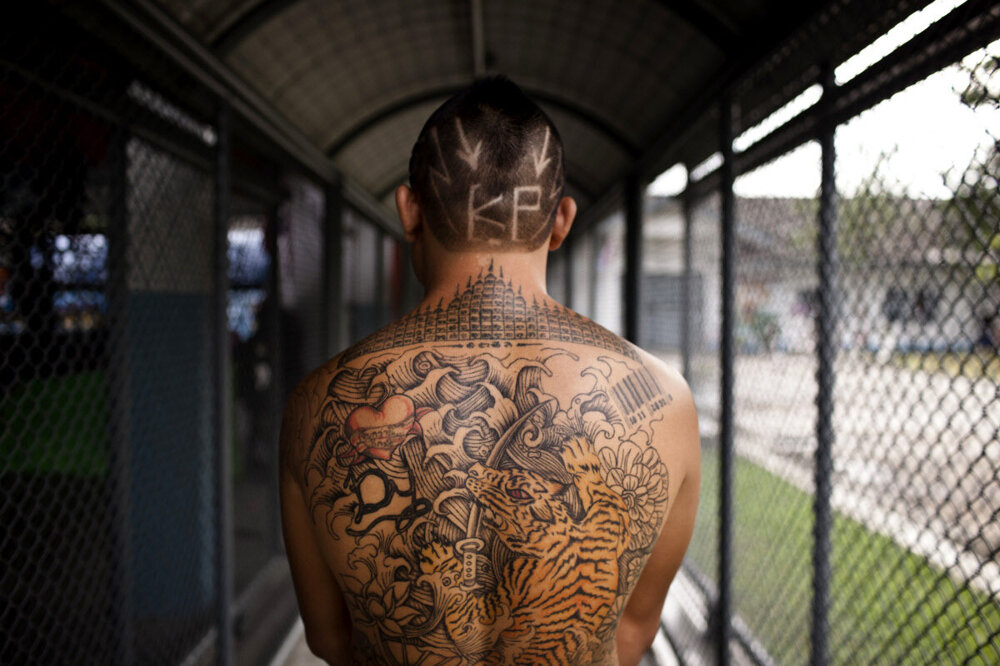
Many Thais believe harsh prison conditions help prevent reoffending after release, even if research suggests otherwise. Thai prisons are not purgatory, but simply hell. Dehumanizing convicts does not reform them.
“This doesn’t help. It doesn’t help at all,” Prontip emphasized. "It doesn't guarantee that people serving their sentences will feel remorse. There is no system of correction to make them realize their mistakes. Prisons are just places where people are thrown for a period of time.
Former prisoners are perceived poorly in society and are discriminated against. They find it difficult to find work and get back on their feet after leaving prison. When society does not give them a chance to reform, they are forced to return to a criminal lifestyle and the sinister cycle continues.










